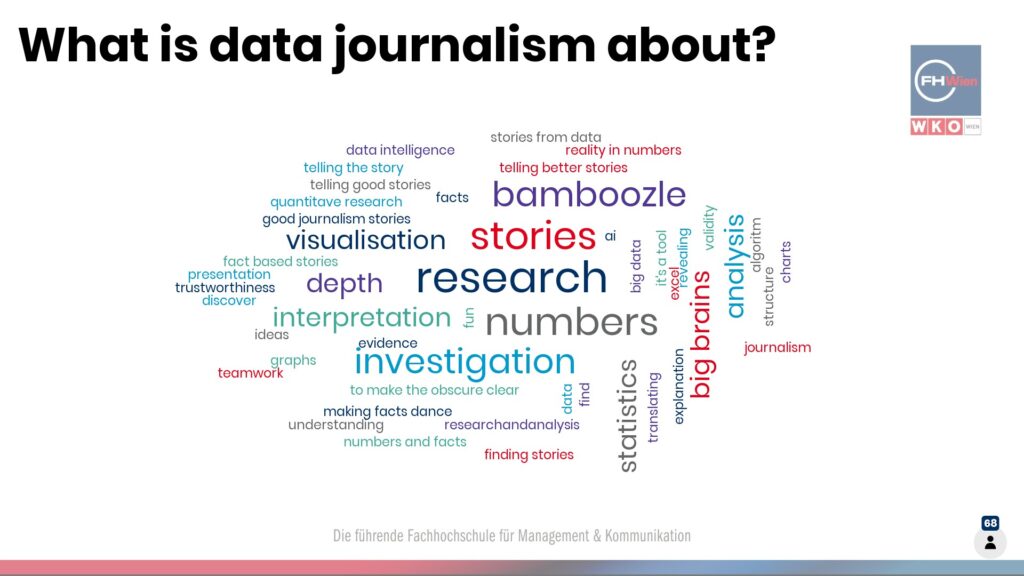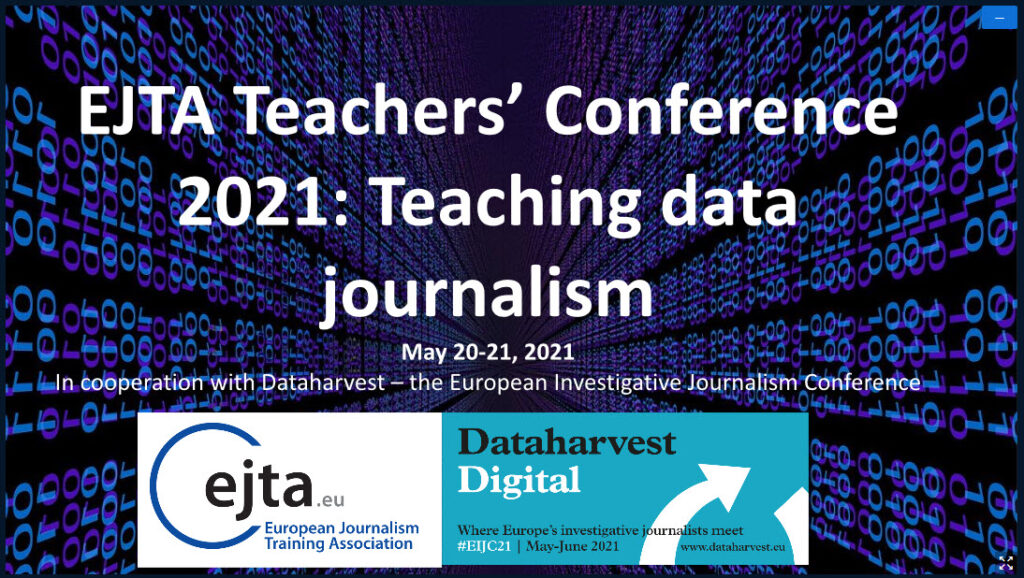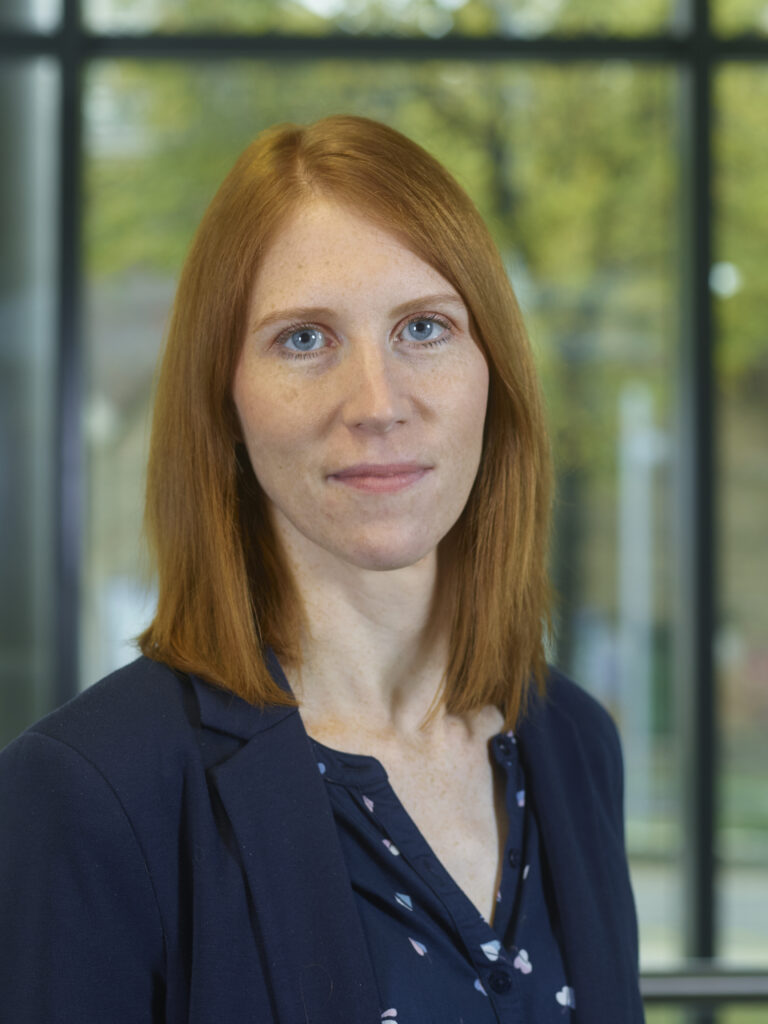Researching, analysing and socially classifying data is an important task for journalists. The significance of data journalism in journalism education was the topic of this year’s “Teachers Conference 2021” of the European Journalism Training Association (EJTA). Regula Blocher represented FHWien der WKW with a presentation on her teaching activities.
Data journalism has been a fixed element of the curricula at FHWien der WKW’s Journalism & Media Management study programs for around ten years. Initially still a niche topic, the relevance of data-driven journalism has steadily increased in recent years in the professional field as well. Data competence is now one of the central skills in digital journalism. In Austria, for example, Dossier.at regularly draws attention with data journalistic research. The research platform was founded in 2012 by graduates of the study program, among others, who are now represented in the team of practical lecturers for data journalism.

In an interactive element during the lecture, the audience was able to use mentimeter to create a digital mind map on the topic of data journalism – the bigger the words, the more often they were mentioned. ©Regula Blocher/FHWien of WKW
Data journalism in education
As Academic Coordinator for New Media & Online Journalism, Regula Blocher is responsible for the data journalism courses and also works as a lecturer herself. In her presentation on “How to teach data journalism” for the EJTA Teachers Conference 2021, which took place online this year, she gave an overview of the didactic structure of her seminar and the tools and exercises used. For example, the students learn about the entire process of a data journalism project and write their own data-based news article. To do this, they use digital tools for the analysis and visualisation of data.
The stories behind the data matter
Through the practice-oriented approach, students quickly lose the fear of contact with numbers in Excel spreadsheets that journalists are often accused of having. After all, it is about stories that can be found in these data sets and are relevant to individuals or society as a whole. Technical skills in dealing with data, for example programming skills, will be even more in demand from journalists in the future, the conference participants agreed.
Would you like to know more about this topic? Regula Blocher, Academic Coordinator
New Media & Online Journalism at FHWien der WKW s at your disposal: steht Ihnen gerne zur Verfügung:
Mag.a (FH) Regula Blocher
Academic Coordinator
New Media & Online Journalism
Tel.: +43 690 40 476 126
regula.blocher@fh-wien.ac.at
| About the European Journalism Training Association (EJTA): The European Journalism Training Association (EJTA) was founded in Brussels in 1990 and currently unites some 70 journalism centres, schools and universities from around 30 countries across Europe. The aim is to promote cooperation and exchange of students and teachers in order to jointly further improve journalism education in Europe. Within the framework of this cooperation, the study programs Journalism & Media Management at FHWien der WKW is actively involved in international projects and training programmes. These include the fact-checking project “EUFACTCHECK“, which aims to build a sustainable curriculum unit on fact-checking within a European network of journalism schools, or the radio project “Europe On Air”. |

